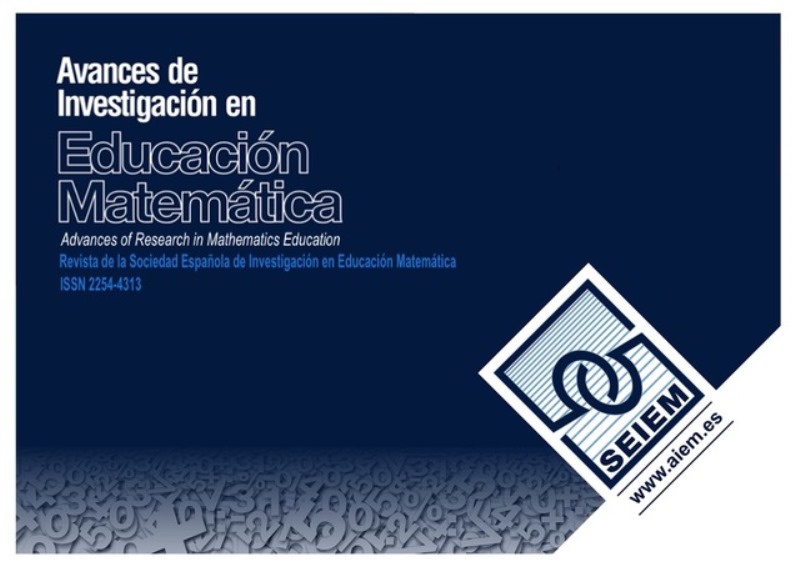El sesgo de equiprobabilidad como dificultad para comprender la incertidumbre en futuros docentes argentinos.
DOI:
https://doi.org/10.35763/aiem.v1i11.185Palabras clave:
Tendencias de pensamiento probabilístico, sesgos probabilísticos, equiprobabilidad, formación competencial docenteResumen
En este trabajo se describe el uso del sesgo de equiprobabilidad, identificado en el razonamiento de 908 estudiantes para profesor de secundaria de Matemática y de Biología, de la provincia de Mendoza, Argentina. Analizamos la utilización de argumentos justificativos de las respuestas dadas a doce preguntas de investigación en las que se les pide a los estudiantes justificar la asignación de un cierto grado de la estimación de la probabilidad a un determinado fenómeno que se le plantean. La elección de
los fenómenos se realizó teniendo en cuenta el contexto en el que se presentaba y el grado de probabilidad; se realiza convenientemente para que los ítems usados sean representativos de los contextos de juego, el contexto cotidiano y el contexto físico-natural.
Descargas
Descargas
Publicado
Cómo citar
Número
Sección
Licencia
Los trabajos se publican bajo una licencia de Creative Commons: Reconocimiento 4.0 España a partir del número 21 (2022).
Los autores que publican en esta revista están de acuerdo con los siguientes términos:
- Los autores conservan los derechos de autor y el reconocimiento de la autoría.
- Los textos publicados en esta revista están sujetos –si no se indica lo contrario– a una licencia de Reconocimiento 4.0 Internacional de Creative Commons. Puede copiarlos, distribuirlos, comunicarlos públicamente, hacer obras derivadas y usos comerciales siempre que reconozca los créditos de las obras (autoría, nombre de la revista, institución editora) de la manera especificada por los autores o por la revista. La licencia completa se puede consultar en http://creativecommons.org/licenses/by/4.0.
- Los autores pueden establecer por separado acuerdos adicionales para la distribución no exclusiva de la versión de la obra publicada en la revista (por ejemplo, situarlo en un repositorio institucional o publicarlo en un libro), con un reconocimiento de su publicación inicial en esta revista.
- Se permite y se anima a los autores a difundir sus trabajos electrónicamente (por ejemplo, en repositorios institucionales o en su propio sitio web) antes y durante el proceso de envío, ya que puede dar lugar a intercambios productivos, así como a una citación más temprana y mayor de los trabajos publicados (Véase The Effect of Open Access) (en inglés).









